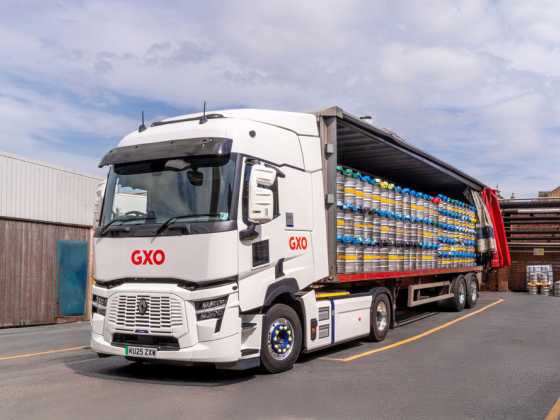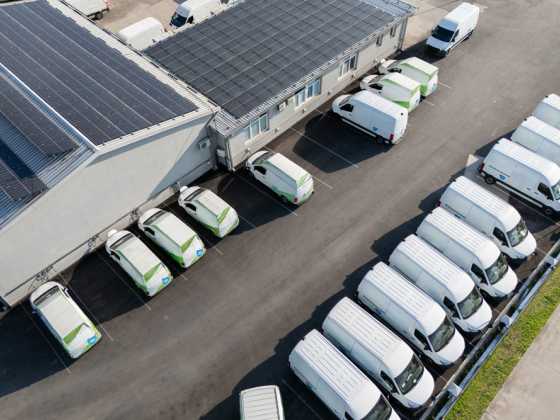The changing nature of corporate travel
Business travel is undergoing revolutionary change. The continued growth of on-demand services, such as carpooling or ridesharing, is forcing companies to consider how best to meet the changing needs of their employees, while finding opportunities to reduce cost. Frost & Sullivan’s mobility programme manager Martyn Briggs, reports
 Frost & Sullivan recently completed a survey amongst key fleet and travel decision makers at organisations across five European countries, to find out about current usage, policies, and the interest in such new mobility business models in the corporate world. While a clear interest in new solutions was demonstrated, there were varying opinions and use cases for these services.
Frost & Sullivan recently completed a survey amongst key fleet and travel decision makers at organisations across five European countries, to find out about current usage, policies, and the interest in such new mobility business models in the corporate world. While a clear interest in new solutions was demonstrated, there were varying opinions and use cases for these services.
Transportation services are being transformed, as a result of urbanisation and smart cities, changing social preferences to access over ownership of vehicles, and most importantly advancing technology. The key enabler of this transformation in the short‑term has been the smartphone, as we see a proliferation of applications available to compare travel modes, view travel information, hail cars on‑demand and even access and operate vehicles with carsharing services offered by rental or sharing providers, or peer‑to‑peer networks.
This growing connectivity has enabled a new opportunity for businesses to utilise such services, whether to save costs, or increase convenience and options for employees, empowering staff to access several mobility options on demand, and increasingly offering administration benefits, through automatically handling travel expenses.
Shared vehicles
Many of the sharing or mobility solution providers have witnessed significant growth in the consumer travel (B2C) market and are now redirecting their focus to the business (B2B) market to substantiate future growth and tailor their service offering accordingly. Zipcar for Business, for example, provides shared vehicles for a single company within working hours, returning them back to their B2C offer thereafter. Uber have partnered with Concur to handle business trip expenses automatically, and commenced a business account service giving employers more visibility and control over the spend on Uber by their employees for business use. Even peer to peer parking services such as parkatmyhouse have rebranded as JustPark to focus on more corporate opportunities, such as parking at business locations.
Advancing technologies are impacting both the fleet and travel functions at organisations, with a growing visibility of spend on such services being afforded by solution providers, and the opportunity to improve administration by offering self service solutions. All of this is leading to a convergence of the fleet and travel management department at several organisations, as we witness a shift away from just considering the total cost of ownership of fleet towards managing the total cost of mobility for the organisation.
Current trends in mobility
When asking fleet and travel managers regarding their current usage for mobility solutions, the Frost & Sullivan survey showed that mileage reimbursement (66 per cent of sample), a company car (55 per cent) and cash car allowance (46 per cent) were the highest solutions currently used in the UK. However, the highest future interest in the UK was shown for incentivised carpooling (21 per cent). Across all countries combined, corporate carsharing was the mobility solution with the highest future interest – 24 per cent of the sample declared they were interested in deploying this in the next two years, showing a positive outlook for services such as AlphaCity from Alphabet, Shareyourfleet from PSA or Ubeeqo.
Who to target to sell such solutions however, was a bit less clear; more than 12 job roles were registered as the key decision makers for corporate mobility at an organisation, ranging from function areas of facilities, finance, HR, to board/CEO level. Five per cent of the sample declared their job role was a dedicated mobility manager for their organisation. This makes the sales channel and business development plan for mobility providers a lot less straight forward than just targeting the fleet manager, and therefore the survey suggests a clear customer segmentation plan is required to filter companies likely to be interested in such solutions.
Indeed, when looking at different industry sectors, we saw that ICT firms were the most interested in carpooling (26 per cent), while 28 per cent of public sector and financial service companies respectively were interested in corporate carsharing, with the service sector industry being most interested in car rental, showing some early potential to prioritise mobility products by customer industry segment.
One product or service that seemed to be demanded consistently across the survey was data and reporting, allowing the following conclusions to be made. Firstly, 52 per cent of the sample did not know the spend on mobility services, whether as a quantified range or as a percentage of company turnover. Additionally, 31 per cent are not aware of the company’s carbon footprint from fleet and travel, while the highest attributes any mobility solution should address were overall cost (57 per cent) and cost control (43 per cent) which transparent reporting and travel data can provide. Finally, 73 per cent of the UK sample specified comprehensive reporting as a key parameter when selecting a mobility solution provider.
A key conclusion therefore is that providers which take a consultative approach with their clients in understanding customer needs, and analysis of the benefits their solution can provide, are likely to succeed in building long lasting relations with their suppliers. This was shown particularly in the business travel section of the research, where although just 50 per cent of the sample were using IT platforms for booking and expensing travel, over 75 per cent were highly satisfied and unlikely to change provider; most of whom provide a detailed level of reporting as part of their service, such as CWT which have their own solutions consulting group for example.
Pain points
To substantiate the research findings from this quantitative survey, Frost & Sullivan analysts spoke to 120 decision makers at organisations to understand their organisations’ usage and pain points for corporate mobility in more detail, which provided several rich findings. For example around half of those spoken to were already piloting or deploying the kind of mobility solutions they were interviewed about, especially corporate carsharing, integrated mobility and car clubs. About one third of these companies requested more information on some of the solutions available to them or expressed, that they were likely to deploy such systems very soon.
Already 22 per cent believed their fleet and travel management departments could merge, and were interested in an IT platform that facilitated this. A considerable number of personnel have already been employed to handle both, especially in regional headquarters of multi-nationals looking to rationalise their administration spend, leveraging the opportunity of new data driven reporting tools to allow access to mobility services, and detailed billing/reporting/auditing thereafter.
The survey finds there is a fundamental shift in the way organisations are providing B2B mobility solutions to their clients, and those that can deliver a compelling user experience to handle the pre-trip, in-trip, and post-trip information and reporting are likely to succeed in penetrating more of the corporate market in years to come. This is attracting several industry sectors, from vehicle manufacturers and third parties such as leasing/rental companies, to technology firms and travel management companies, all aiming to deliver their take on an integrated door to door corporate mobility solution.
The convergence of fleet and travel management will also be debated during a panel discussion at Frost & Sullivan’s upcoming ‘Intelligent Mobility: Future Business Models in Connected and Automated Mobility’ event, which will be taking place on 1-2 July 2015 at the House of Lords and the Royal Garden Hotel in London.






